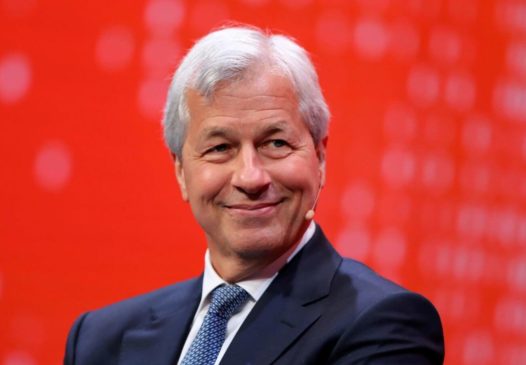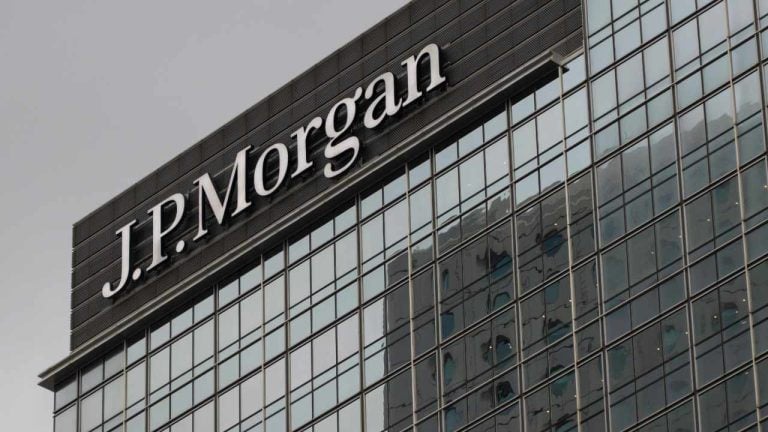- JPMorgan wants more QE from the Federal Reserve.
- Meanwhile, CEO Jamie Dimon is arguing that wealth inequality is a growing problem in the U.S. economy.
- Here’s why Dimon’s comments are so hypocritical.
In a move that surprised nobody, JPMorgan Chase joined Goldman Sachs in claiming that the Federal Reserve needs to institute more quantitative easing to stave off a possible spike in bond yields.
Amusingly, this came just hours after JPMorgan CEO Jamie Dimon claimed coronavirus was a “wake-up call” about the need for a more “inclusive” economy.
Writing in a “stakeholder memo” this week, Dimon said:
I also want to share how we are thinking about and preparing for not only the safe re-opening of our economy, but also laying the foundation for an inclusive recovery that unlocks economic opportunity for more people.
There’s just one problem. An inclusive economy is precisely the opposite of what QE creates.
Wall Street Loves QE (and So It Should)
Mr. Dimon is quite talented at talking out of both sides of his mouth.
As the proud owner of Chase, one of the largest banks in the United States, JPMorgan has a lot to gain from the Fed’s already massive QE “infinite” program.
Put simply, the JPMorgan and Goldman Sachs want the Fed to buy more bonds.
Jerome Powell and his team do this by purchasing debt from holders such as pension funds, and then artificially increasing funds in the seller’s bank account.
They increase liquidity in the banking system by putting more money on their books. All the while ignoring the damaging impact on ordinary consumers.
The U.S. Wealth Divide Was a Problem – Now It’s A Disaster
If Dimon is genuinely concerned about an inclusive economy, that means he must hate Fed intervention that failed in creating any real-world inflation and instead piled capital into assets like real estate and the stock market.
This drastically increased wealth inequality in the United States to levels not seen for decades.
Well, apparently not. The billionaire’s investment bank is fretting over a possible spike in what are currently pretty depressed yields.
That sums up Wall Street’s approach to social justice: Talk a lot about helping the less fortunate to maintain PR while doing everything in their power to maintain the status quo.
The coronavirus pandemic has accentuated the existing wealth divide again. Service workers have overwhelmingly lost their jobs, while most white-collar employees have been able to work remotely.
When the top and the bottom get too far apart, it starts being extremely damaging for the economy. Just ask Nigeria.
Jamie Dimon’s PR Mission Is Doomed
So next time Jamie Dimon says something about wealth equality, don’t harp on about the fact he’s a billionaire or that JPMorgan is one of the biggest offenders.
Just ignore him.
He knows that millennials hate everything he stands for, and he – just like every other Wall Street banker – is desperately trying to shift that perception.
Why do you think Goldman Sachs is getting into retail banking so aggressively? Partly because they need to rebrand, but mainly because after their actions in 2008, no average millennial will have any assets for them to “investment bank” down the road.
The damage from the coronavirus may be unprecedented, and so the artificial, anti-free market reaction from the financial establishment will be equally remarkable.
Using the political shield of “protecting jobs,” Jamie Dimon and the Fed will do their best to ensure that four years from now, nurses will still be paid practically the same or less in real terms than they were four years ago.
At the same time, fragile, part-time service jobs will materialize to prop up the unwieldy debt pile that is the U.S. economy. All at the expense of those part-time workers.
Good luck, Gen Z.
Disclaimer: This article represents the author’s opinion and should not be considered investment or trading advice from CCN.com. Unless otherwise noted, the author has no position in any of the stocks mentioned.
This article was edited by Josiah Wilmoth.
Last modified: May 21, 2020 2:03 PM UTC




